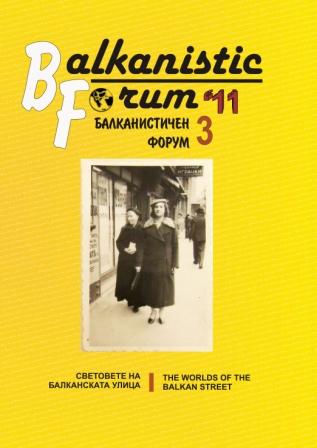
In this paper I propose to analyze in short the changes of the building that occurred in the Bulgarian capital between the 19th and the beginning of the 20th century.
More...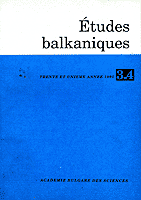
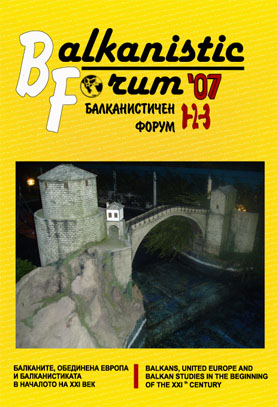

Keywords: Constantinople; Turkish heritage; Bulgarian culture
Ottoman legacy is curious topic in Bulgarian cultural studies. Despite the overall quest for prestigious legacies and heritages (Antique, Thracian, even Byzantine, not to mention Slav and Proto-Bulgarian), it is still neglected and even rejected. Mass-consciousness admit some traces and influences in the field of material culture, in cuisine, rarely in traditional costumes and even more rarely in customs. Ottoman legacy is often seen as ‘legacy of shame’ from witch modern Bulgarians should deliberate themselves. The paper deals with one particular Bulgarian image of the key event in the interrelations between Balkan peoples and Ottomans – the conquest of Constantinople (1453). Starting from the problematic differentiations between the “own” and “alien” the paper presents one odd dramatic work on that topic, written in verses by Svetoslav Milarov in 1871–1873 and published in full text in 1883. The analysis puts this work in the context of other mythical plots such as the Fall of Bulgarian Kingdom and different perspectives toward it.
More...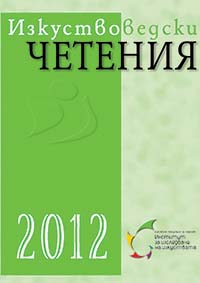
The issue of ‘identity crisis’, discussed in a globally convertible research context, dispels old illusions and fosters new ones. Can we escape the intellectual trap of a new total theoretical integration? The ideas of borders, traditions and heritage are subject to cold-blooded liberal revisions, supported by the expectedly recognizable hybrid and symbiotic manifestaions. Fight over the past inevitably brings to life dramas in the national architectural histories of European Southeast. Against the dynamic general backdrop, the issue of the Ottoman architectural heritage comes to the fore, strategically important in regional and European political context and in a typically Balkan manner, difficult to discuss, especially form a Bulgarian viewpoint.
More...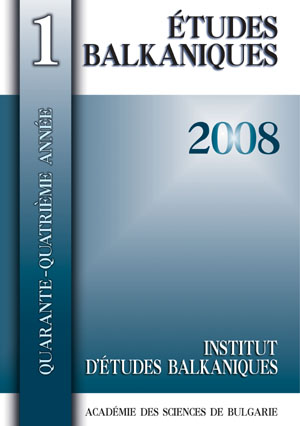
Keywords: stereotype; image; Balkans; slavs; identity of the modern Balkan person;
The terms stereotype, image, and idea are very frequently used in literary theory as borrowings from other humanitarian fields. In social sciences, the term stereotype refers to different groups of individuals in terms of race, nation, nationality, and is connected above all with racial prejudice. It was coined by Walter Lippmann in his book “Public Opinion”, 1922, in which he claims that we perceive reality through the images that have already been created in our mind; secondary images that mediate our relation to reality. According to the same author our perception of the world and our personal experience depend on the clichés that we have inherited from our own culture. These stereotypical images are recreated by means of special communicative codes, politics, art, etc.
More...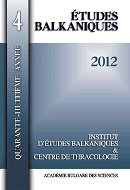
Keywords: the Balkans; Croats; Bulgarians; relations between the Balkan peoples; cultural bridges.
The article investigates the images of Bulgarians in the Croatian literature. It deals with the meaning of the relations between the Balkan peoples regarding their common past and some common cultural prerequisites. Based on a sample of literary works from the 20th century some basic conclusions about the presence of Bulgarians in the Croatian literature are drawn.
More...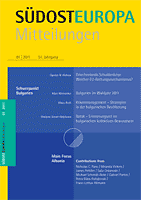
The article reflects one viewpoint in a discussion recently prevalent in Bulgaria which concerns places of remembrance in the national culture. As exemplified by the Batak scandal it analyses meanders of pre-modern and modern discourse devoted to the commemoration of a trauma. Based on two cultural sources, a well-known and officially approved painting by the Polish 19th century painter Antoni Piotrowski entitled “Slaughter in Batak” and his “Autobiography” currently published only in fragments, the author shows tensions between the intention of the painter and the social function of his artwork in the era when “little narratives” were legalised and changed their status into “great narratives”. A special place in the analysis is taken by the issue of victimhood nationalism as a specific tool used by small nations in their political strategies.
More...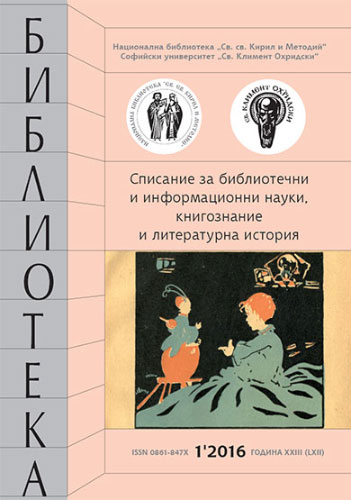
Keywords: cultural history;
This paper deals with the Diaries of Petar Dinekov, published posthumously,and comments the references to two other eminent critics from the near past Georgi Tsanev and Efrem Karanfilov. Although the numerous things that connect them, especially from the perspective of the later generations, Dinekov’s notes, in fact, does not mention Karanfilov and reveal some kind of tension in his relation with Tsanev.
More...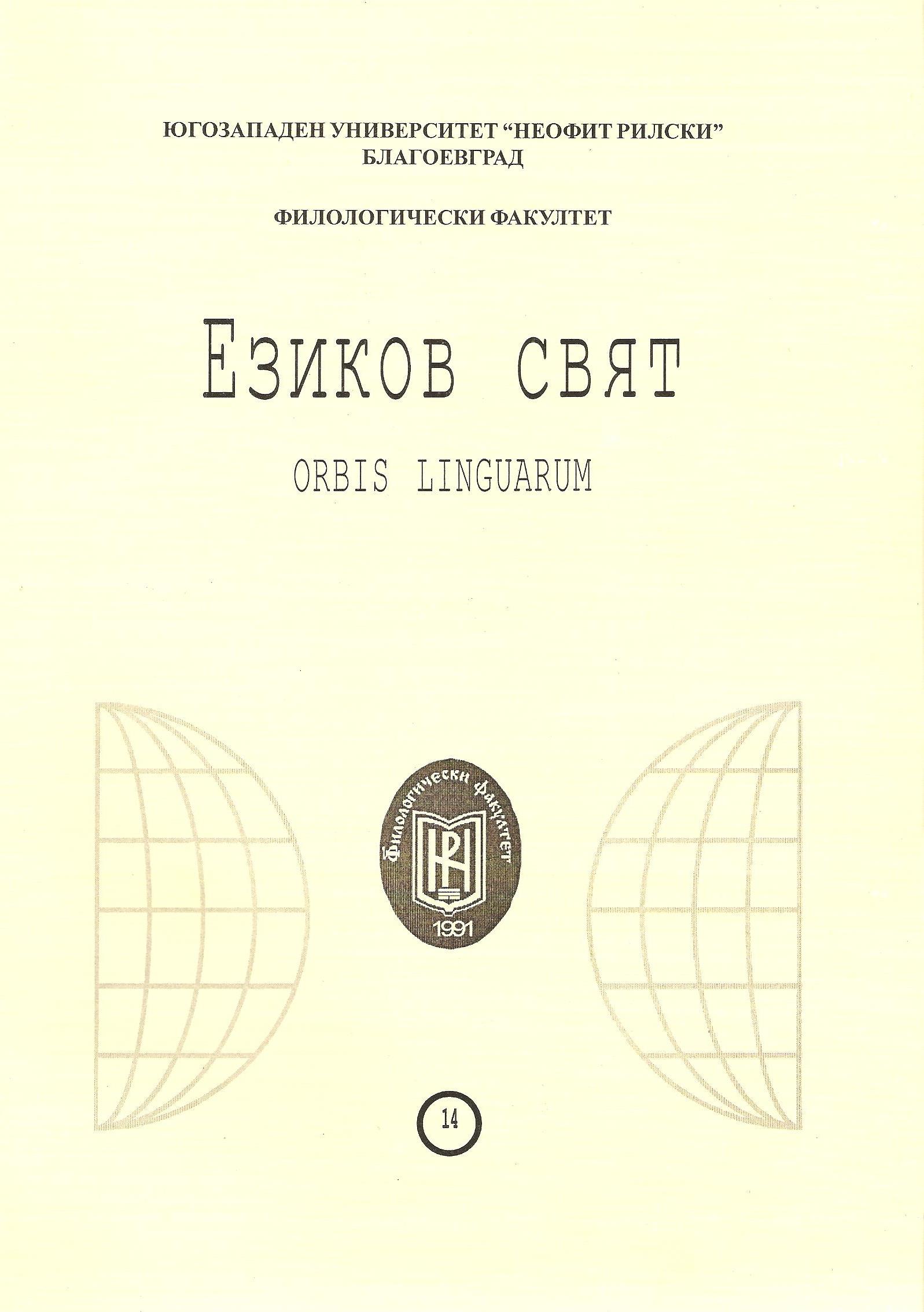
Keywords: Poetry; Memoirs; Adventures; Resorts; Сlassic and Popular Literature
This report aims to present some amusing stories of Bulgarian writers among the Bulgarian resorts as well as poems and songs about wine and resorts. The songs praise passion, love and adventures with women, wine and temptations. The report uses fiction, memories and poetry from Iv. Vazov, K. Hristov, P. P. Slaveykov, P. K. Yavorov, Tz. Tzerkovski, D. Debelyanov, Hr. Smirnenski, N. Liliev, As. Raztsvetnikov, M. Petkanova, Iv. Hadzhihristov, Ran Bosilek, and other. The biographical notes of the Bulgarian poets include many funny and entertaining stories. They are the reason why classic literature spreads in the same pace and in the same place as popular literature in Bulgaria. The most sensible genre in this respect is poetry – it manages to accept and create a lot of hit songs, praising these feelings. Love, wine and women are three irreplaceable constants when it comes to adventures around Bulgarian resorts.
More...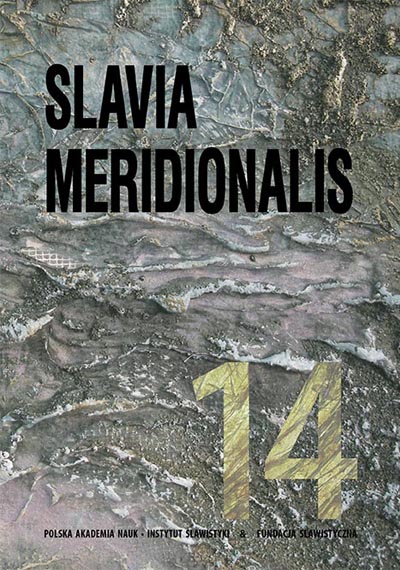
Keywords: the Folk Bible; anthropology of religion; vernacular Christianity; creation myths; Slavonic and Balkan cosmogonies; dualism; Bogomilism; oral tradition; apocryphal literature; modern Bulgarian poetry
Compared and contrasted in this article are three different types of accounts dealing with the cosmogonic and eschatological themes employed in Slavonic and Balkan oral tradition, para-Biblical literature and modern poetry. The focus of analysis is the cluster of motifs attested in the creation narrative of the apocryphal Legend of the Sea of Tiberias. Two versions are examined: the South-Slavonic one discovered in 1845 by V. Grigorovich in the Monastery of Slepche, and the 18th century Russian account from MS № 21.11.3 (fols. 3a–5b) from the Archaeographic Department of the Library of the Academy of Sciences [Библиотека Академии наук, Рукописный отдел] in St. Petersburg, composed most probably by an Old Believer; this manuscript is published here for the first time. Folklore counterparts of the apocryphal Legend of the Sea of Tiberias are treated, with special emphasis on the oral narratives from the Bulgarian diaspora in Bessarabia (God and the Devil Create the World Amicably but then Fall Out). Finally, a poem of the 20th century Bulgarian intellectual Pencho Slaveykov [Пенчо Славейков] from his anthology “On the Island of the Blessed” is discussed; the poem, entitled How God willed the Earth to come to be and what did Satanail do after that? was designated by Slaveykov himself as “a legend of the Bogomils”, and blended within his lyrics are dualistic themes and motifs attested in vernacular Christianity, with the hallmark of Haeresis Bulgarica.
More...
Keywords: nationalism; national mythology; Founder; Khan Asparukh
This paper examines the dynamics of ideas on the beginnings of Bulgaria, such as were developed by early nationalism in the 18th and 19th centuries. Surveys show that there were different theses which competed tacitly. It is immediately noticeable that the figure of the Founder was imposed with difficulty and relatively late – in fact not until the 20th century. Paisius of Hilendar and the other authors of early histories presented Bulgarians in the context of Biblical history, and thus the beginning of Bulgarian time was associated with Noah and his sons. This idea was not openly attacked by successive generations, but they alternatively associated Bulgarian time and Bulgaria with the medieval kingdom, and especially with the baptism and deeds of Saints Cyril and Methodius. Among pre-Christian rulers, Khan emerges as significant, presented as Law-Maker and great Warrior, but not as Founder. It is typical for the nationalism of any ideological (and not only ideological) structure to strive for extension – in this case to seek its starting point at an ever earlier date. This proces can also be observed in the structures of Bulgarian nationalism: in the second half of the 20th and early 21st centuries there was a clear focus on the time before the Founder Khan Asparukh (7th century), and scholars and journalists still take pleasure in finding older Bulgarian states. However, before the founding of the Principality of Bulgaria (1878), the opposite was true. (Some) representatives of the revolutionary movement in fact rejected the medieval period and preferred to focus on more recent periods, if not on their time itself and even on the immediate future. More or less unexpectedly, this idea was re-vitalised in the late 20th century with the catch-phrase “the most Bulgarian time” associated with the 1870s.
More...